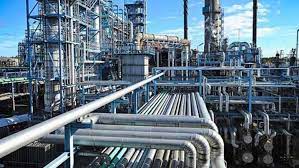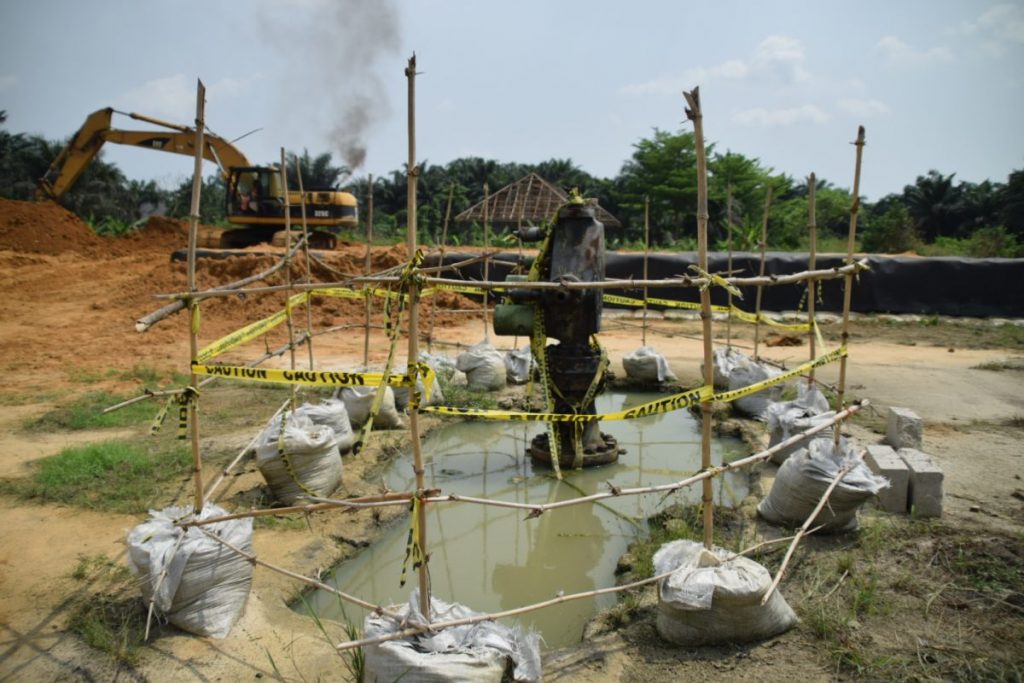 23 April 2012, Sweetcrude, KHARTOUM – South Sudan’s army said Sunday it had completed its pullout from an oil field seized from the rival Sudanese regime, ending a bitter standoff which forced thousands of civilians to flee.
23 April 2012, Sweetcrude, KHARTOUM – South Sudan’s army said Sunday it had completed its pullout from an oil field seized from the rival Sudanese regime, ending a bitter standoff which forced thousands of civilians to flee.
South Sudanese officials said the withdrawal from Heglig had been ordered to avert a return to all-out war. But they accused forces of the Khartoum-based Sudanese government of carrying out aerial bombardment on the departing troops.
The South’s troops seized Heglig on April 10, claiming Khartoum was using it as a base to attack the South’s oil-producing Unity State.
Heglig is internationally regarded as part of Sudan, although South Sudan disputes it. The 10-day occupation by the world’s newest nation met widespread criticism, including from UN chief Ban Ki-moon, who called it illegal.
South Sudan’s President Salva Kiir on Friday announced his forces would carry out “an orderly withdrawal” from the area. On Sunday, a Sudan People’s Liberation Army (SPLA) spokesman said all southern troops had left.
The SPLA “completed its withdrawal from Heglig yesterday” spokesman Philip Aguer told AFP.
But, he charged, as the withdrawal was ongoing, Khartoum’s air force “continued bombing on the night of the (Friday April) 20th and in the morning of the 21st”.
The two sides have offered contradictory explanations for recent developments in Heglig.
On Friday, Sudan said its soldiers had “liberated” the oil field by force, despite Kiir’s earlier announcement of a withdrawal.
The South Sudanese UN Ambassador Agnes Oswaha has said Juba decided to withdraw “because it does not wish to see a return to war.”
The Heglig violence was the worst since South Sudan won independence in July after a 1983-2005 civil war in which about two million people died.
The United Nations said Sunday the entire population of Heglig had fled the standoff, leaving thousands of civilians displaced in the open.
“According to the government of Sudan’s Humanitarian Aid Commission (HAC) and other reports received by the UN, the entire civilian population of Heglig town and neighbouring villages fled,” the UN’s humanitarian agency said.
The report cited HAC figures saying 5,000 people had escaped from Heglig, mostly to the communities of Kharasana and Keilak, about 100 kilometres (60 miles) north of Heglig, Sudan’s main oilfield.
Tensions have gradually mounted over the disputed border and other unresolved issues, raising fears in recent weeks about concerns of a wider war.
Continental and foreign powers have urged negotation to avert further escalation, with US President Barack Obama on Friday calling on the two sides to “have the courage to return to the table and negotiate and resolve these issues peacefully.”
Kiir heads to China on Monday for an official visit to a country long-considered Khartoum’s ally, although Beijing has developed closer ties with Juba, notably in the petroleum sector.
“China’s position on that issue is to promote dialogue and urge peace. It does not favour any side,” said Li Guangyi, professor at the Institute of African Studies at the University of Xiangtan in central China.
“Fighting is not only not beneficial to them (Sudan and South Sudan), it isn’t beneficial to China either,” he added.
The African Union (AU), which has for years sought to broker a sustainable peace between the bitter rivals, on Sunday again called for “a complete cessation of all hostilities,” and a swift resumption of talks.
Both sides should consider their “responsibility towards their region, the rest of Africa and the larger international community,” the AU statement said.
Since the invasion, oil production at Heglig has been shut and facilities there were leaking. Each side accused the other of damaging the oil infrastructure, which accounted for about half of the north’s production.
South Sudan formally gained independence from Khartoum in July.
Also on Sunday, Sudan claimed to have inflicted heavy losses on rebels from the Sudan People’s Liberation Movement-North (SPLM-N) who allegedly attacked the strategic town of Talodi.
“Fighting is still going on,” Sudanese army spokesman Sawarmi Khaled Saad told reporters, while a rebel spokesman reached by AFP had no information and said “things are not clear.”



